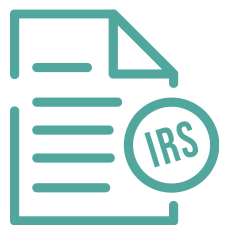MESA, AZ TAX DEBT ATTORNEY
Tax Debt Resolution Options in Queen Creek, AZ
Owing money to the Internal Revenue Service (IRS) or Arizona Department of Revenue can be scary and stressful, especially if you do not have the means to repay. Tax debt can accumulate when you do not file on time, change withholdings, withdraw from retirement, negotiate debt, and in many other common scenarios.
Many assume that payment plans are the only option when you owe money to the IRS or the state’s department of revenue. Some also assume income tax debt is not dischargeable in bankruptcy. With so few relief options seemingly available, many choose to do nothing, give up, and wait for the consequences.
Do not lose hope. In many situations, tax problems can be meaningfully addressed and overcome. Our Mesa, AZ tax debt lawyer at D.M. Bankruptcy Law Group, LLC can help you resolve these types of obligations through filing for bankruptcy. Our experienced team has over 20 years of experience and has successfully handled over 1,500 cases. Our attorney will work closely with you to develop a tailored plan for reducing and eliminating your tax debt.
Schedule a free initial consultation to learn more about how we can help you address money owed to the IRS or the Arizona Department of Revenue. Call (480) 842-8786 or contact us online today!
REQUEST A FREE CONSULTATION
WE ARE BY YOUR SIDE
When you choose D.M. Bankruptcy Law Group to represent your case, you will work directly with Attorney Dutkiewicz. He is available after typical working hours to make sure he can answer all of your questions and be there whenever you need him.
How Can Chapter 7 Bankruptcy Help Me With Tax Debt?
There is a pervasive myth that tax debt cannot be discharged, or “forgiven,” in any form of bankruptcy. The truth is tax debt owed to the IRS or the state can be discharged in a Chapter 7 bankruptcy so long as certain conditions exist.
You can potentially discharge income tax debt in a Chapter 7 bankruptcy if:
The tax debt is at least 3 years old at the time of filing for bankruptcy
The tax return for the year you are attempting to discharge was filed at least 2 years prior to filing for bankruptcy
The tax debt was assessed at least 240 days before filing for bankruptcy or not assessed at all
It can sometimes be difficult to measure the age of a tax debt or the time period between the filing of a tax return and filing for bankruptcy. Other factors, including the existence of liens and whether the IRS or Arizona Department of Revenue has filed a tax return for you, can also influence discharge eligibility. Our Gilbert, AZ tax debt lawyer can carefully assess your situation to ensure your tax debt meets all of these complex conditions.
AFFORDABLE BANKRUPTCY & DEBT SOLUTIONS
Fill out the form below to receive a confidential initial consultation to explore your debt relief options.
Proudly serving clients in Gilbert, Mesa, Queen Creek, Phoenix, and the surrounding areas.
HOW CAN CHAPTER 13 BANKRUPTCY HELP ME WITH TAX DEBT?

Chapter 13 bankruptcy can serve as an excellent tool for helping you eliminate and manage tax debt. All of the rules that apply for tax debt discharges in a Chapter 7 bankruptcy also apply to Chapter 13 bankruptcy. However, a Chapter 13 bankruptcy can also help you address tax debt that does not meet the 3/2/240 conditions.
Chapter 13 bankruptcy can help you pay tax debt that you cannot discharge over time. Reorganization payment plans last between 3 and 5 years, and your monthly obligation will be tied to your current ability to pay.
The Bankruptcy Court will typically allow you to prioritize these taxes over unsecured debts, such as medical bills and credit cards, which are eligible for discharge. This can be doubly helpful, as it allows you to focus your available resources on debts you could not otherwise discharge through bankruptcy. Chapter 13 bankruptcy can also help you pay down any tax-related lien. Our team has handled many clients navigate Chapter 13 bankruptcies and can help you understand what tax debt can be discharged and what will need to be paid through your plan.
CAN I FILE FOR BANKRUPTCY IF I HAVE NOT FILED MY TAX RETURNS?
The short answer is yes, you can file for bankruptcy if you have not yet filed your tax returns. However, doing so is not advisable. Any individual that files for bankruptcy without also having filed their tax returns runs the risk of their bankruptcy case being dismissed.
Whenever possible, tax returns should be filed prior to filing for bankruptcy. If this is not possible, you should make every effort to file your tax returns within 2 weeks of filing for bankruptcy. Otherwise, the IRS or the Arizona Department of Revenue will likely move to dismiss your bankruptcy case.
.
What Happens to My Tax Refunds in Bankruptcy?.
Losing your tax refund can be a disappointing surprise for many people. In the state of Arizona, many people will lose some or all of their tax refunds after filing for bankruptcy. Strategically timing when you file for bankruptcy can help you minimize how much you lose.
The law considers the tax refund you receive after filing for Chapter 7 bankruptcy as an asset because some portion of it was owed to you prior to filing for bankruptcy. If you filed for bankruptcy on 7/1/2020 (the midpoint of the year), for example, and received a tax refund in March 2021, you would owe 50% of your refund to your bankruptcy estate to benefit your creditors. Alternatively, if you filed your tax refund on 1/1/2021 and received the same refund in March 2021, you would owe the entirety of your tax refund to your bankruptcy estate.
If you are aiming to protect as much of your tax refund as possible, the best approach is typically to wait to file for bankruptcy until just after receiving your refund.
You will still owe a small portion of your refund to your bankruptcy estate, but the amount should be minimal. You can then use the remainder to cover other expenses.
Tax refunds will be treated similarly to Chapter 7 rules when filing for Chapter 13 bankruptcy. You will likely lose your first refund, and refunds after your first year may need to be turned over, as well. The specifics will depend on your current disposable income and the amount of your plan payment.While you may be tempted to take steps to protect your tax refund, you should not attempt to:
Asking to receive your tax refund on a prepaid credit card. It will not be protected.
Telling your accountant your tax refund to “next year’s taxes.” It will not be protected.
Taking out your tax refund as cash and stowing it away. It will not be protected.
INCOME TAX DEBT RESOLUTION IS JUST A PHONE CALL AWAY
Our Gilbert, AZ tax debt lawyer at D.M. Bankruptcy Law Group, LLC is ready to help you secure a fresh start. Our experienced team can determine whether your tax debt is dischargeable, how unfiled tax returns will be treated, and what will happen to your tax refund when you file for Chapter 7 or Chapter 13 bankruptcy. Fill out the form below to receive a confidential initial consultation to explore your debt relief options.
Explore all your tax relief options by contacting us online or calling (480) 842-8786. We serve clients in Gilbert, Phoenix, Mesa, Queen Creek and surrounding Arizona cities.


